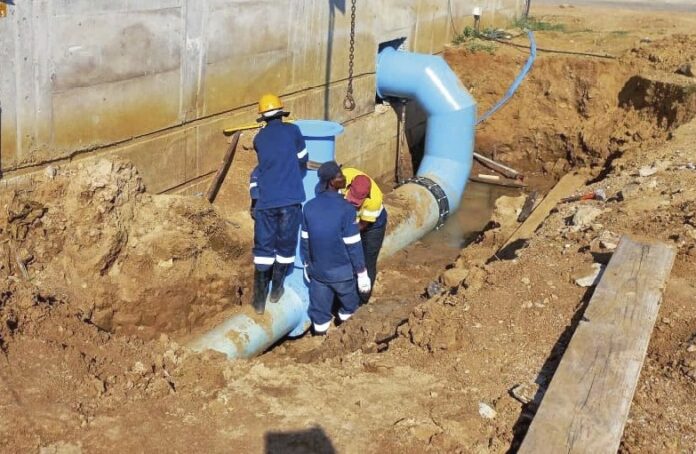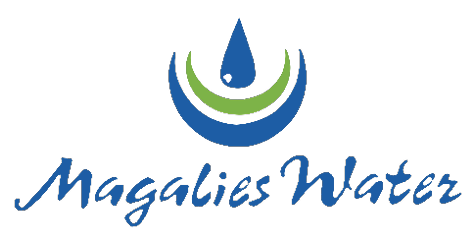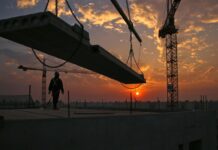Subsequent to extending its footprint in the new areas of operation with the addition of the Far-West and South-West regions, Magalies Water has dedicated time and energy to ensure the new regions are adequately serviced and residents enjoy the benefits of clean drinking water up to the standards where the entity has previously been operating.
The proclamation of the disestablishment and eventually the integration of the operations of the former Sedibeng Water into Magalies Water has resulted in the extension of the services of Magalies Water into the Ngaka Modiri Molema District Municipality, the Dr Ruth Segomotsi Mompati District Municipality and parts of the Dr Kenneth Kaunda District Municipality of North West Province.
The new organisation did not sit on its laurels or spend time scanning the environment for long, but jumped straight into action with several projects that were handed over before their completion.
Projects
The disestablishment of Sedibeng Water meant that Magalies Water had to take over the responsibility of making sure that certain projects in various areas and local municipalities in Ngaka Modiri Molema DM were completed. Some of the projects were already at an advanced stage, some had already experienced delays due to different factors, while others had only recently been started.
Dinokana Rural Water Supply WSIG Project
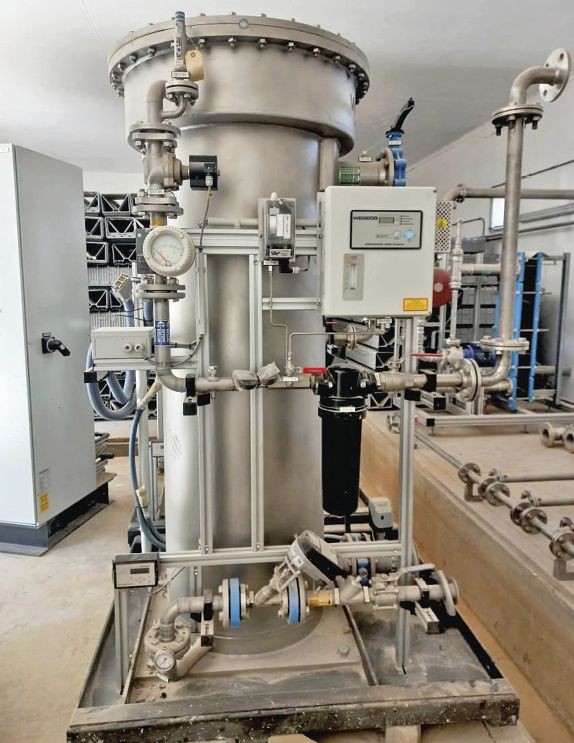
This project was implemented in 2023 under “Operation Bulela Metsi” in the village of Dinokana, Ramotshere Moiloa Local Municipality, which falls under the Ngaka Modiri Molema District Municipality. The Dinokana project was ushered in and reprioritised as part of the intergovernmental interventions led by the then Minister of Water and Sanitation Senzo Mchunu and the North West Provincial Government. WSIG refers to the Water Services Infrastructure Grant, a national grant managed by the Department of Water and Sanitation (DWS).
The project scope entails the refurbishment and upgrade of the Dinokana rural water-supply infrastructure, which includes highlift-pump refurbishment and an upgrade from 2Ml/day to 4Ml/day; refurbishment of boreholes; upgrading of the springwater pump station and pipeline; refurbishment of the distribution system up to the bulkwater reservoirs; and constructing an additional 2Ml reservoir to provide additional gravity pressure.
The Dinokana Water Supply Intervention project is being implemented in four phases:
- Phase 1: Bulk pipeline distribution construction, including reservoir and refurbishment of existing transmission lines.
- Phase 2: Refurbishment of boreholes and additional drilling and equipping of boreholes.
- Phase 3: Reticulation and standpipe at 200m radial distance within village boundary.
- Phase 4: Upgrading pump station and pumping line to allow both reservoirs to be fed by pump station. The objective is to provide an additional 35 000 residents with standpipes.
Having conducted and covered all the necessary stages of implementation, the project is currently near to the close-out stage, when a formal handover will be conducted.
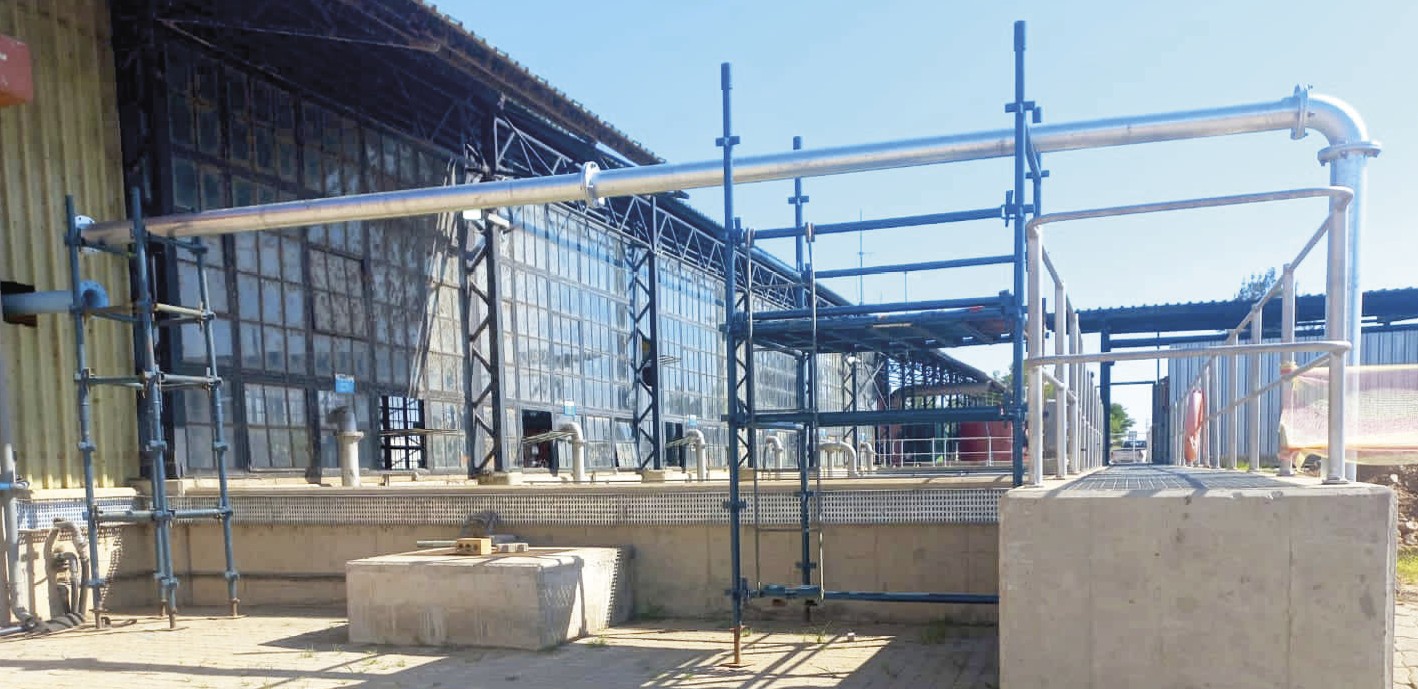
Upgrading of Mmabatho Water Treatment Works
The saying “out of strife always comes growth” aptly fits the conceptualisation and planning of the augmentation of bulkwater supply to the City of Mahikeng and its peri-urban villages. The city and villages lie within the Mahikeng Local Municipality in the Ngaka Modiri Molema District Municipality.
The objective of the Mmabatho Water Treatment Work (WTW) Project is to increase the capacity of the water-treatment works and to improve the bulkwater distribution to the region. As the capital of the North West Province, Mahikeng has, like many South African urban areas, experienced an ever-growing population due to the migration of people from other areas who are driven by a need to seek a better life and more opportunities. As a mixed settlement that consists of both urban areas and peri-urban villages, Mahikeng has consistently been characterised by significant backlogs in water supply and sanitation. This was clear from the results of the Census 2011, which was completed shortly before the project was conceptualised.
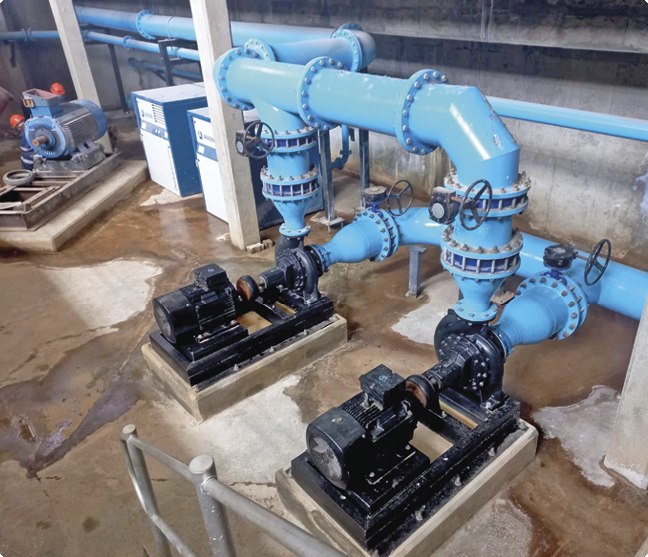
The augmentation work involved upgrading the existing 20Ml/d Mmabatho WTW to a 30Ml/d plant in order to address the water balance in a local municipality that supplies a population of nearly 300 000 people, residing in 102 villages as well as the city’s suburbs.
Key to the successful implementation of our projects at Magalies Water has always been good cooperation, engagement and constructive relations with all relevant stakeholders such as local municipalities, Water Service Authorities involved as beneficiaries of the project and local traditional leadership, when the project falls within their area of jurisdiction. In addition, we source local labour and materials and ensure the involvement of the local business community.
The upgrading of the Mmabatho Water Treatment Works is expected to the completed by August 2025.
Visit Magalies Water online at https://magalieswater.co.za/



